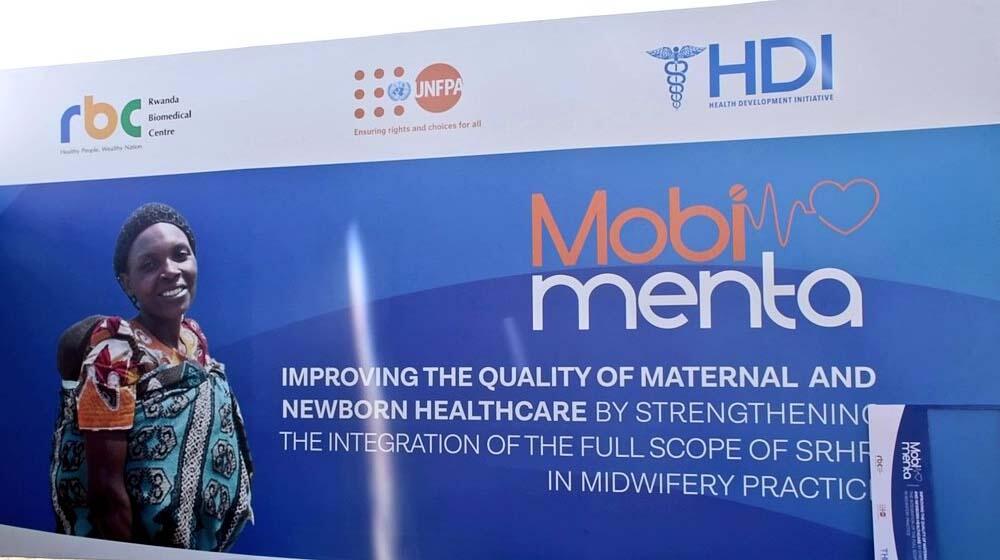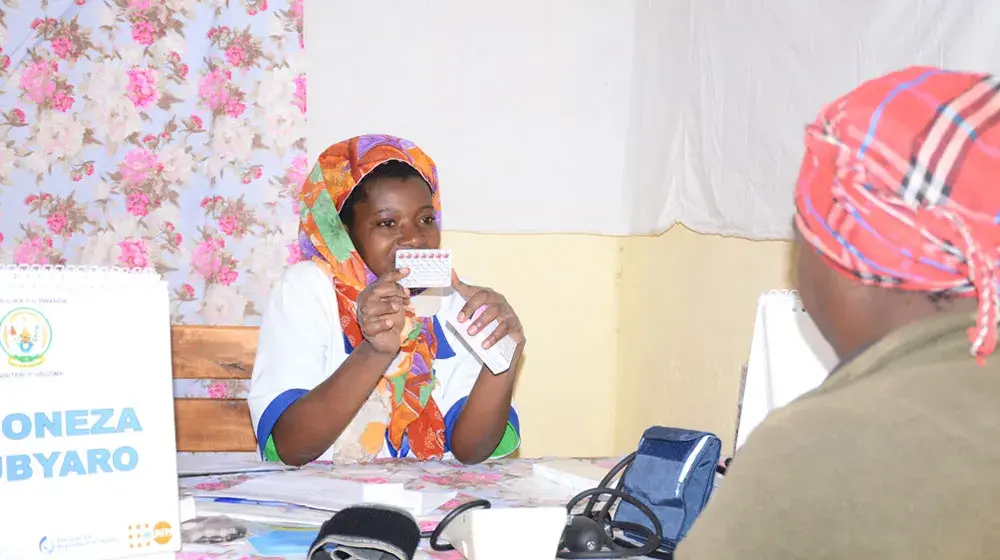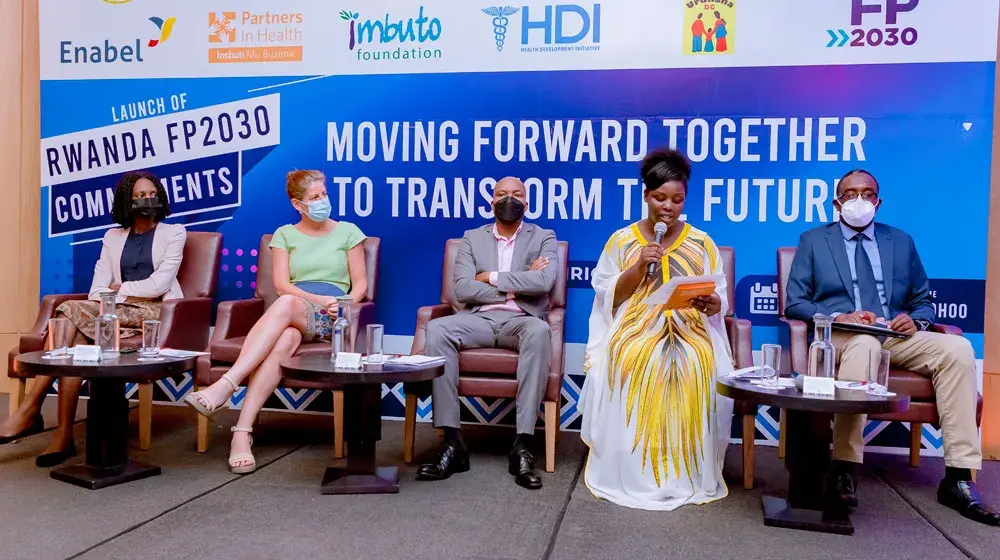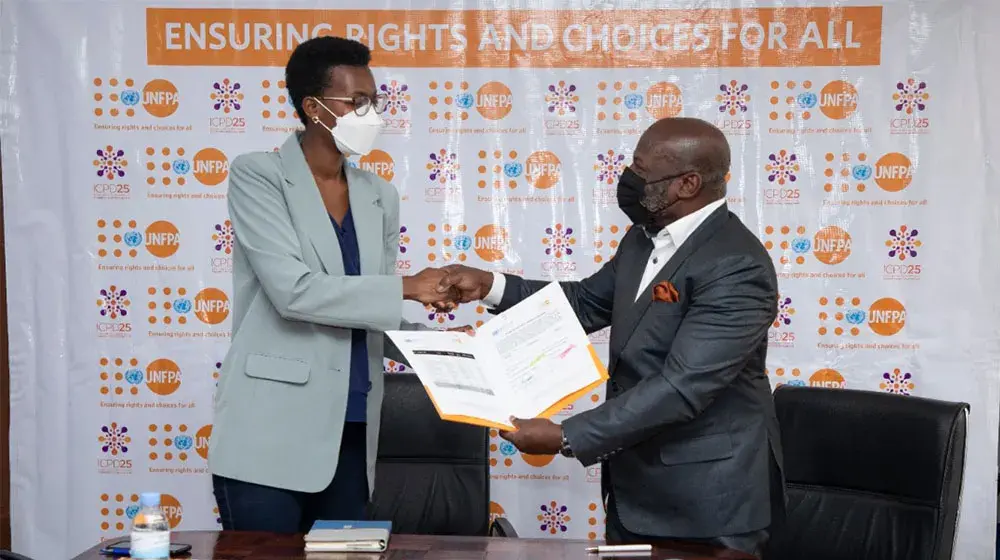Health Development Initiative (HDI) in partnership with Rwanda Biomedical Center (RBC) and United Nations Population Fund (UNFPA), on November 03, launched an ambitious mobile mentorship initiative dubbed "MobiMenta" as part of other existing interventions to reduce preventable maternal and neonatal morbidity and mortality.
Supported by Laerdal Global Health, the initiative will facilitate a capacity-building model which allows the tailoring of training packages to specific individual needs of the targeted health facilities. The continuous support of on-the-job mentorship will lead to long-term improvements in the health sector and will bridge gaps in emergency obstetric neonatal care (EmONC), family planning (FP) and comprehensive abortion care (CAC).
This cost-effective initiative will not only save the lives of women and children but will also improve their health and well-being. The on-site training offered to healthcare providers in health facilities will incorporate active learning and structured simulations and use mobile classrooms to reach healthcare providers in the most rural areas in Rwanda.
“This new approach will improve service delivery at healthcare facilities. We have been incorporating different types of mentorship in order to give quality of care services at the lowest healthcare facilities, such as the supportive supervision checklist method, where trainers and trainees gather periodically to review maternal health service delivery,” Karamage Eliphaz, Officer of Adolescent Sexual and Reproductive Health in Rwanda Biomedical Center explained.
“But this new initiative will strengthen the existing approaches. Midwives will be trained and supervised on-site until they start working independently. The healthcare providers will be working with skilled professionals who have experience in emergency intensive neonatal care.”
According to the 2021 State of the World’s Midwifery report, midwives, when competent and supported by a functional health system, can help prevent over two-thirds of maternal and newborn deaths and morbidities. In addition, midwives can deliver 90% of all essential sexual, reproductive, maternal and newborn health services. Therefore, investing in universal coverage of midwives could avert 67% of maternal deaths, 64% of neonatal deaths, and 65% of stillbirths.
“HDI is proud to be leading the implementation of this program in partnership with UNFPA and RBC. We’ve already started the first phase with the training of mentors after the training, monthly mentorships will be conducted in health facilities located in Karongi and Nyamasheke targeting 48 health facilities considering each facility’s needs” said Louange Gutabarwa, Director of Research at HDI
Rwanda has made tremendous efforts in reducing maternal and neonatal mortality. To date, the maternal mortality rate is 203 to 100,000 live births from 487 over the past 10 years.
Even though these efforts have been made, we haven't reached our goal. By 2030, we want to reduce maternal mortality by 66%, which requires strong interventions that could accelerate the reduction of maternal deaths.” Karamage said
Evidence revealed that investment in capacity building of health care workers, specifically midwives, nurses and doctors working within sexual and reproductive health could substantially reduce maternal and perinatal deaths and morbidities. According to the Rwanda Assessment of Maternal and Perinatal Death Surveillance (MPDSR) report 2021, most preventable maternal deaths were due to skills gaps, especially among fresh graduates across all cadres. Thus the need for the establishment of innovative capacity-building models that would facilitate continuous Professional Development in a cost-effective manner.
Lydia Muhoza, a midwife at Rubengera Health Center in Karongi district, was part of the launching ceremony of the Mobimenta Initiative this Thursday. She shares her hopes in regard to the upcoming mentorship, which she describes as very innovative.
“It is good that we continue to train ourselves to provide services in a timely manner. I am very happy that this innovative initiative has been launched today. I believe it will help us make the service delivery run smoothly and will increase our knowledge in emergency obstetric and neonatal care, and comprehensive abortion care.” She said
Mobile mentorship is a capacity-building model well-adapted to the context of Rwanda. Karongi and Nyamasheke in particular are known for their hills, which contribute to the delay of service delivery since patients travel a distance to get to health facilities.
While giving her closing remarks, the Vice Mayor of Karongi in charge of social affairs, Valentine Mukase, commanded the initiative to speed up service delivery and help women in remote areas access high-quality care.
“No woman should die while giving birth. As I was reading about this initiative, my dream for our district is the decentralization of this initiative to the health posts. So that in the coming years, women could have access to quality care at their nearest health post without having to travel miles to get the service. I am glad that the program implementers are going to use mobile clinics to move around and reach the furthest behind in rural settings.” Mukase said
“I would recommend healthcare providers embrace this program, integrate it into service delivery and work in close collaboration with the mentors to have a successful debut. I believe this initiative will greatly contribute to decreasing preventable maternal deaths”
“By the end of next year, we hope to have delivered high-quality maternal and neonatal health care as well as Comprehensive Abortion Care in 48 health facilities located in Karongi and Nyamasheke. We also hope to have 250 health providers equipped with skills in the management of obstetric and neonatal complications and Comprehensive Abortion Care and who are able to apply them to save the lives of mothers and newborns,” said Louange Gutabarwa, Director of Research at HDI
This story was published in partnership with HDI and The NewTimes





